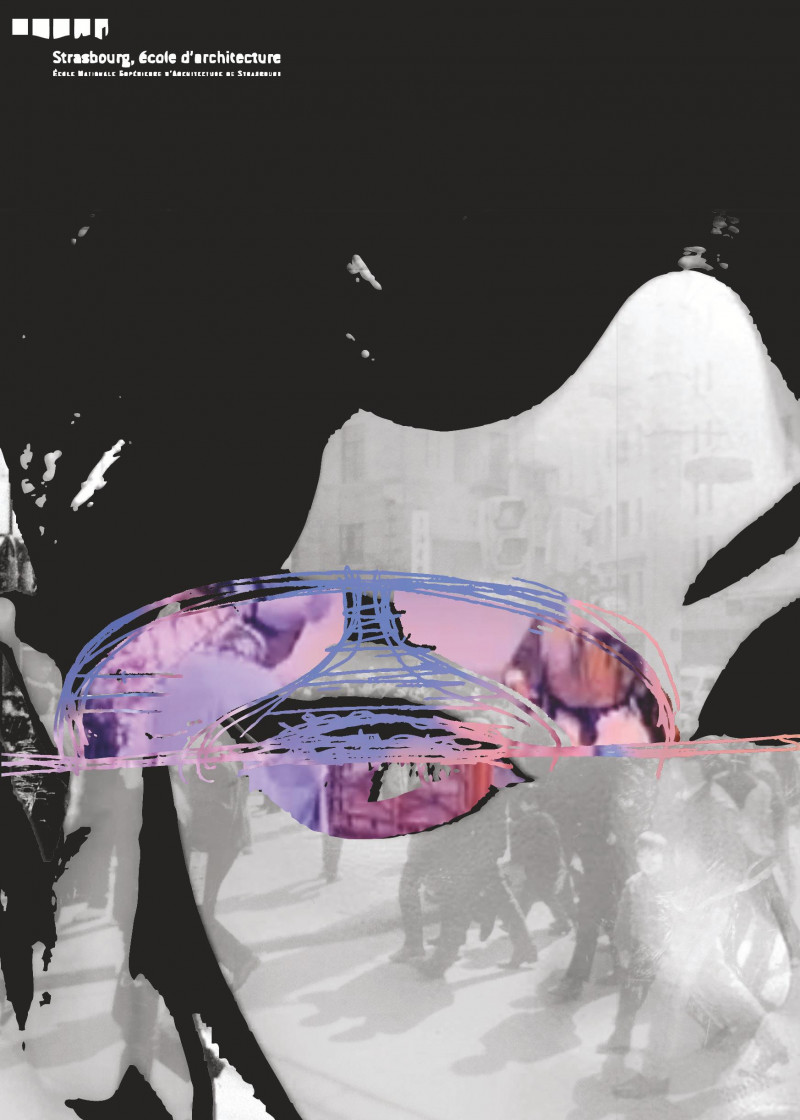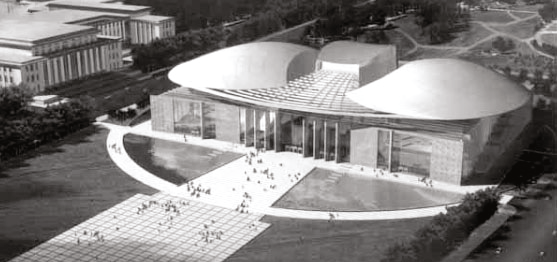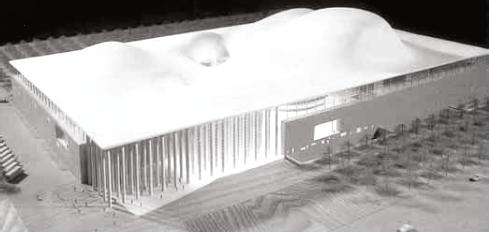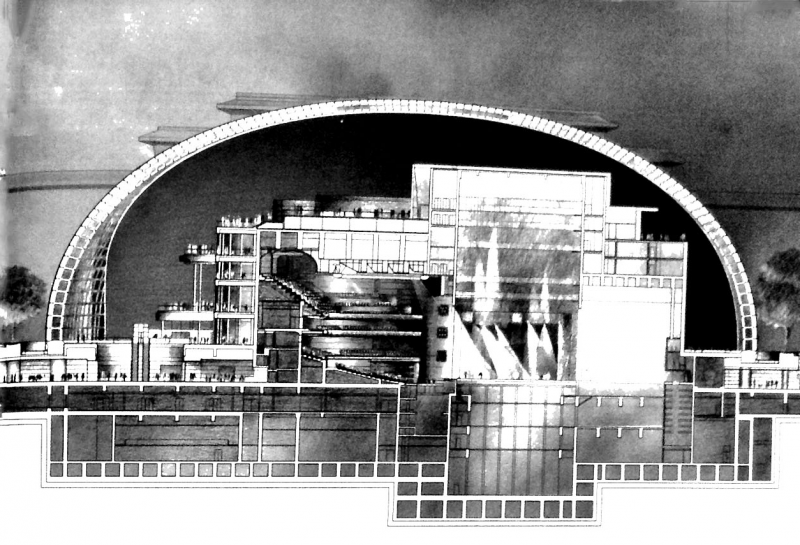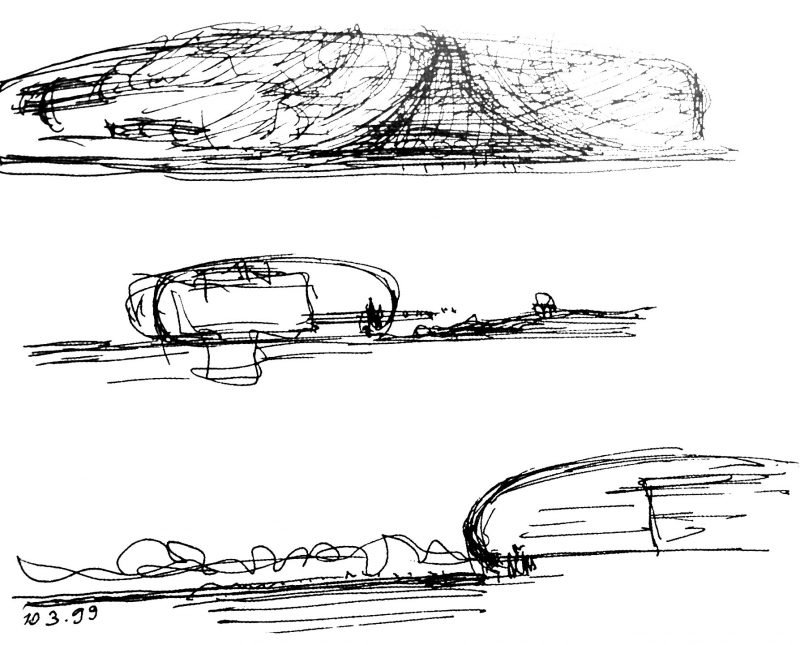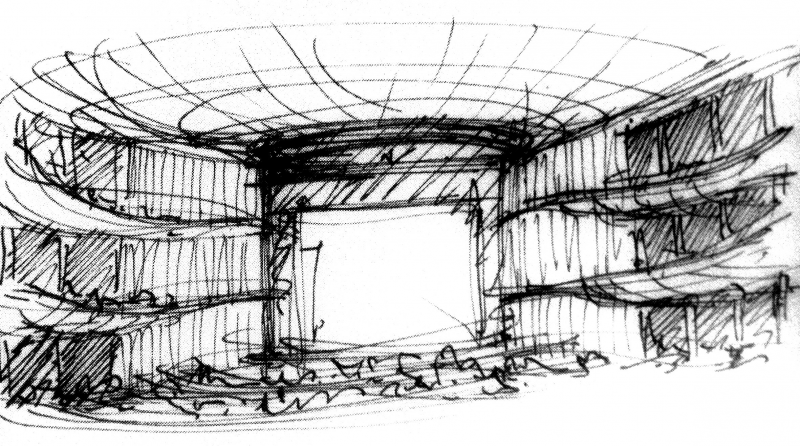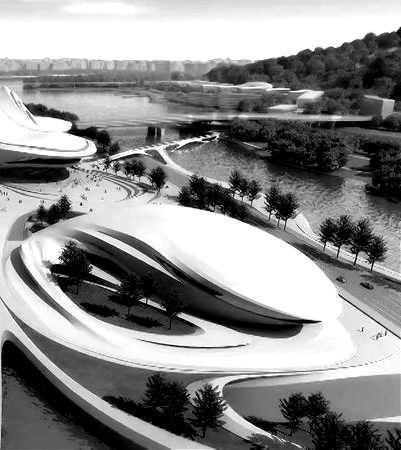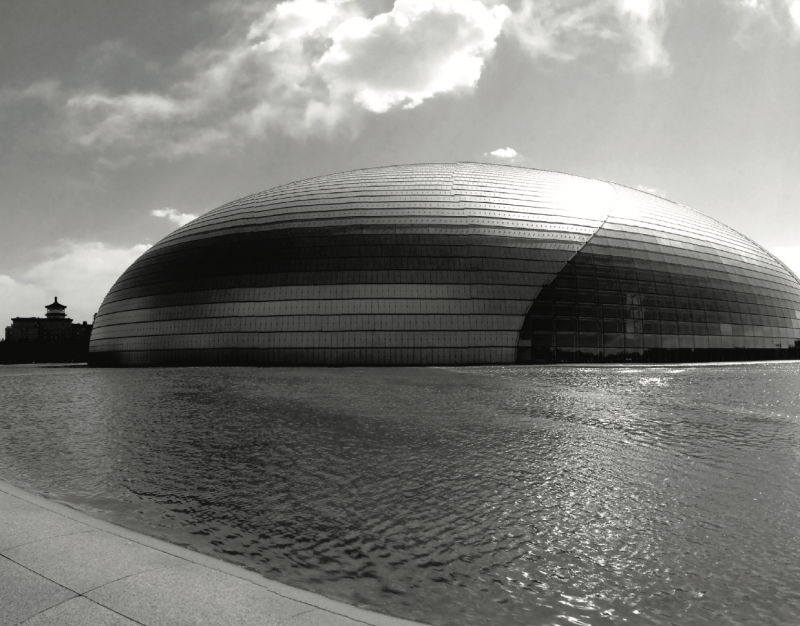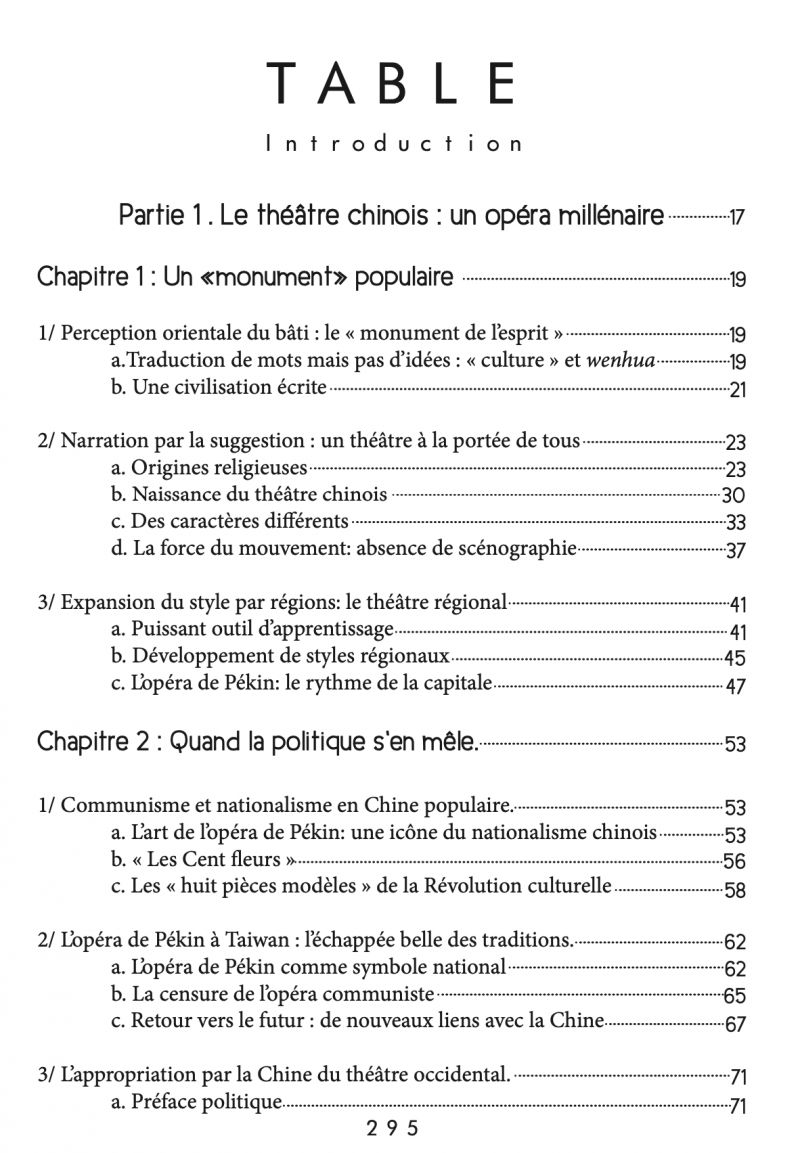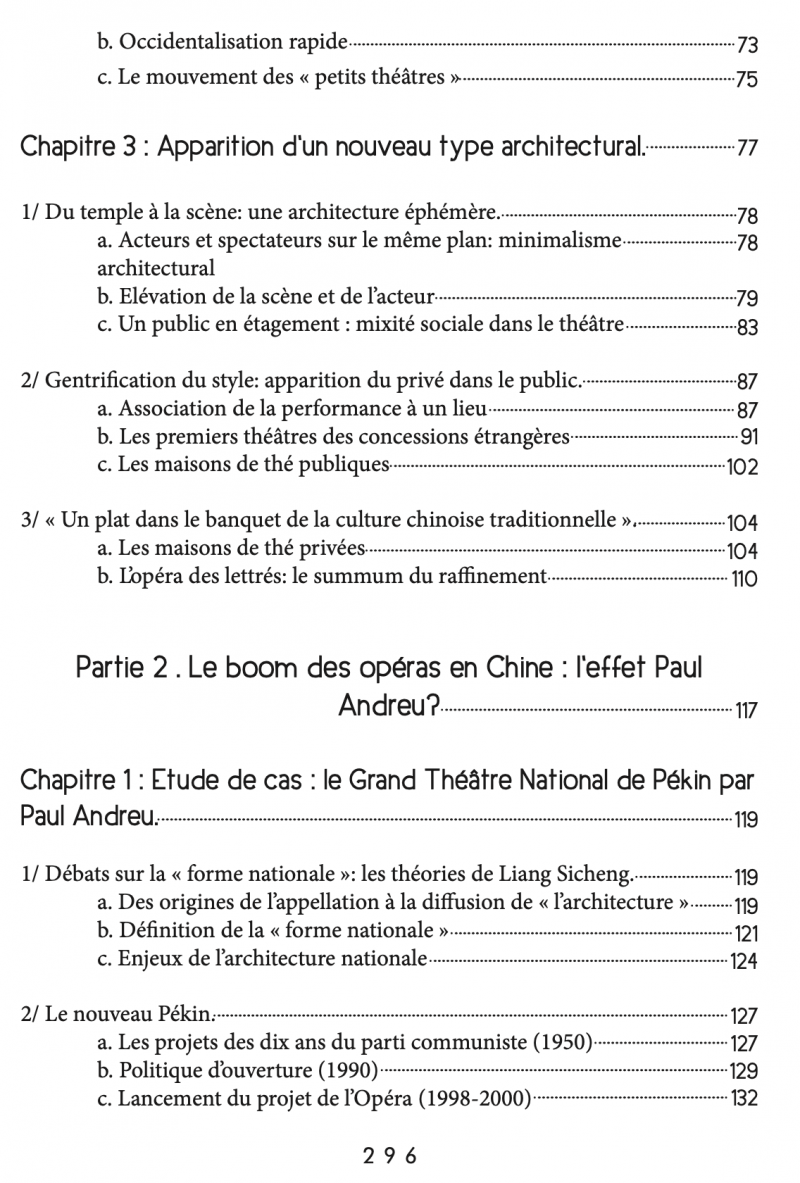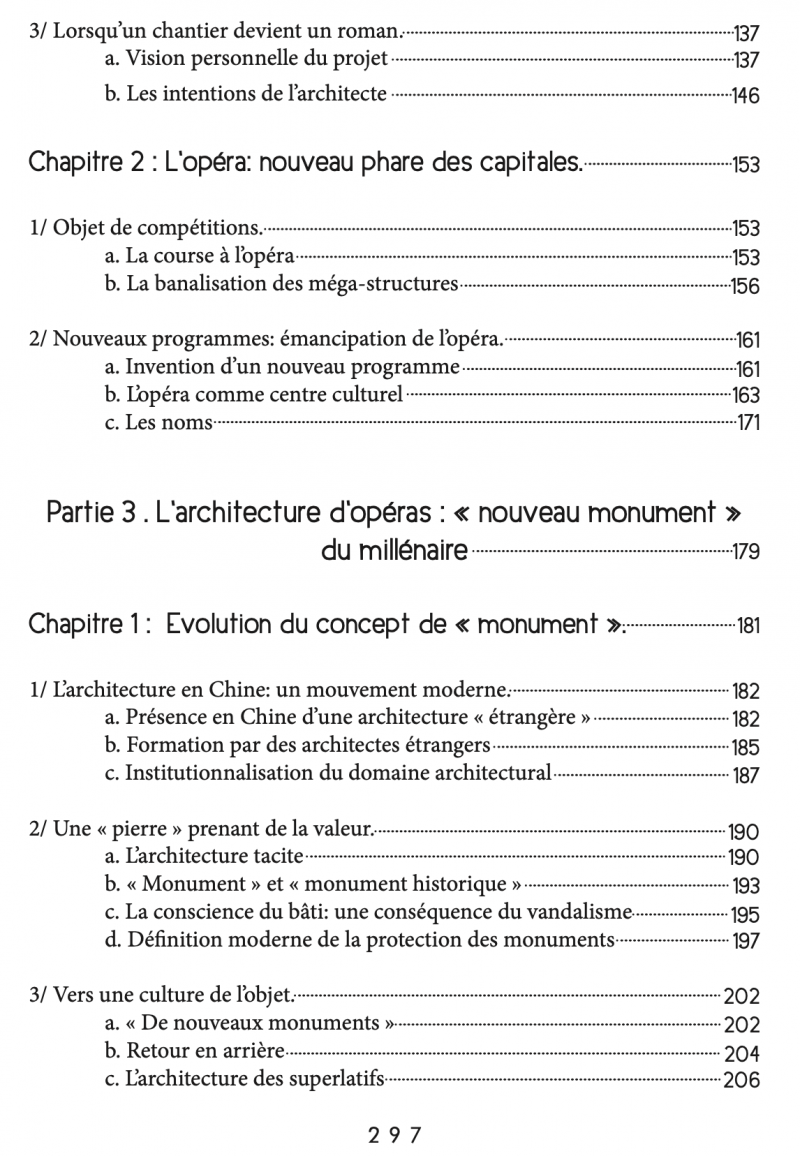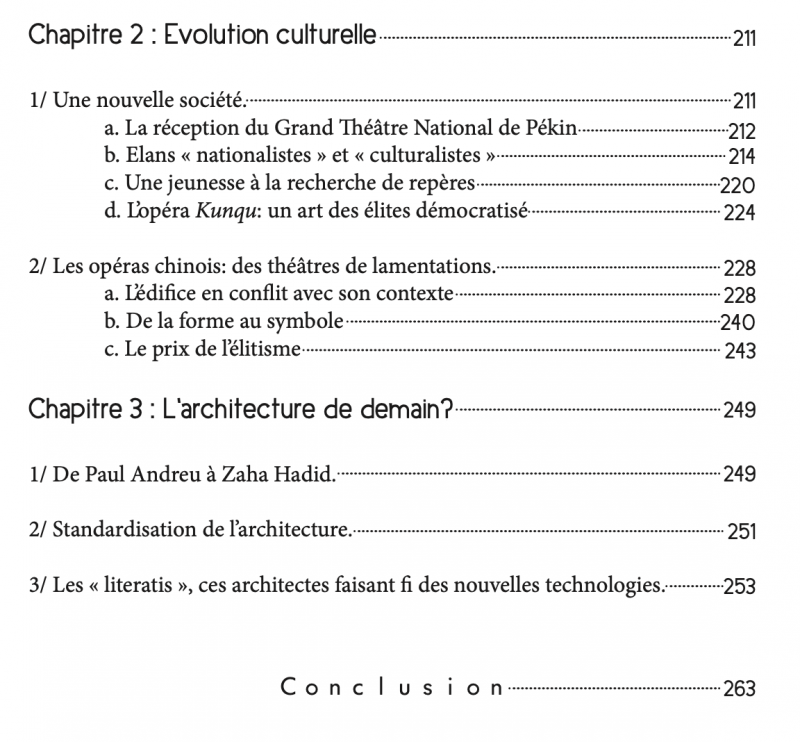The Beijing Opera House, a political "monument"
This work focuses on "opera" in China, both as a cultural fact and as a materiality, questioning how the relationship between building and culture has been gradually reversed as it has evolved. The Beijing Opera House as a theatrical and architectural work is the main investigates case study. The architecture that marks a meeting point between two states of the "monument" seems to embody the aspirations of several generations.
Yet are the new opera houses a continuation of the architecture of theaters in China? And what place does Chinese theater art have in these new opera houses? Finally, what are the direct consequences of the appearance of cultural "monuments" on the relationship between "monument" and "culture"?
Which of art or architecture was now bringing the opera to life more? For the fame of the Peking Opera as an architecture also came from its great media coverage. In France, newspapers such as Le Monde, Le Figaro, Le Moniteur, D'Architecture or even Connaissance des Arts, had all mentioned Paul Andreu's opera at least once to praise or criticize it. Apart from attempts such as that of UNESCO, was opera as an art form still an ambassador of Chinese culture? And finally, has opera architecture killed or revived the opera culture?




